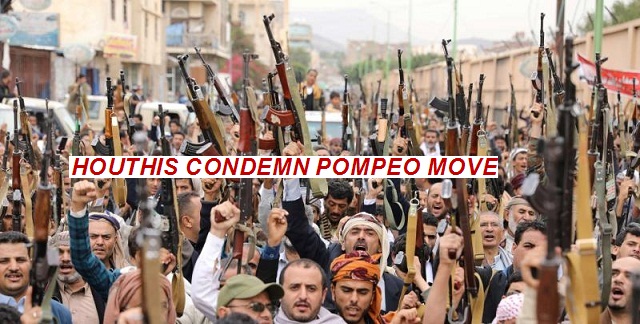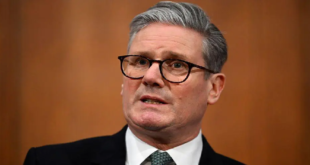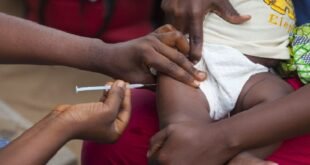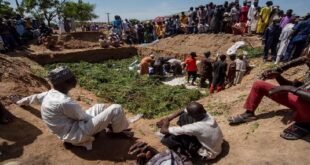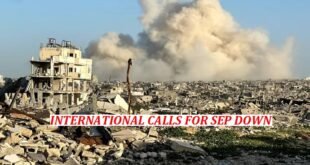11-01-2021
WASHINGTON/ SANA’A/ RIYADH: The United States will designate Yemen’s Houthi rebels as a terrorist group, Secretary of State Mike Pompeo said, a late-term move that aid groups fear will worsen the world’s worst humanitarian crisis.
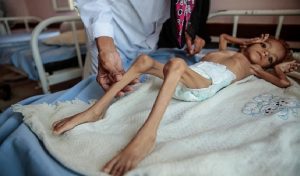 With just 10 days left before President-elect Joe Biden takes office, the announcement on Sunday could complicate the new US administration’s efforts to restart diplomacy with Iran, which has ties to the Houthis and to reassess the US relationship with Saudi Arabia, which has led a brutal offensive in Yemen.
With just 10 days left before President-elect Joe Biden takes office, the announcement on Sunday could complicate the new US administration’s efforts to restart diplomacy with Iran, which has ties to the Houthis and to reassess the US relationship with Saudi Arabia, which has led a brutal offensive in Yemen.
“The designations are intended to hold Ansar Allah accountable for its terrorist acts, including cross-border attacks threatening civilian populations, infrastructure and commercial shipping,” Pompeo said in a statement, using the official name of the Houthi movement.
It has led a campaign that has “killed many people, continues to destabilize the region and denies Yemenis a peaceful solution to the conflict in their country”, he added.
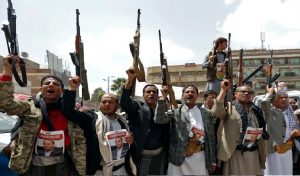 Pompeo pointed to a December 30 attack on an airport in Yemen’s second city Aden, which killed 26 people and was blamed by the Saudi-backed government on the Houthis.
Pompeo pointed to a December 30 attack on an airport in Yemen’s second city Aden, which killed 26 people and was blamed by the Saudi-backed government on the Houthis.
The rebel group controls much of Yemen and is already under US sanctions but a designation as a terrorist group is expected to scare away outside actors from carrying out many transactions with Houthi authorities, including bank transfers and buying food and fuel.
The Trump administration has been piling on sanctions related to Iran in recent weeks, prompting some Biden allies and outside analysts to conclude that Trump aides are seeking to make it harder for the incoming 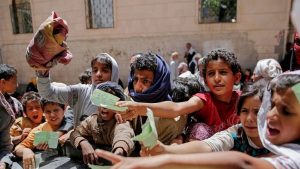 administration to re-engage with Iran and rejoin an international nuclear agreement.
administration to re-engage with Iran and rejoin an international nuclear agreement.
Both the Houthis and Iran condemned Pompeo’s announcement on Monday.
‘Significant move’
The Houthi group is the de facto authority in northern Yemen and aid agencies have to work with it to deliver crucial assistance. Aid workers and supplies also come in through Houthi-controlled Sana’a airport and Hodeidah port.
“This serves no interest at all,” Ryan Crocker, a retired US ambassador who served in the Middle East, said of the designation.
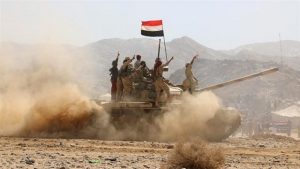 “Are there elements among the Houthis who have been involved in terrorist acts? Sure. Just as with other groups in the Middle East. The Houthis are an integral part of Yemeni society. They always have been. This is making a strategic enemy out of a local force that has been part of Yemen for generations. They are not Iranian pawns.”
“Are there elements among the Houthis who have been involved in terrorist acts? Sure. Just as with other groups in the Middle East. The Houthis are an integral part of Yemeni society. They always have been. This is making a strategic enemy out of a local force that has been part of Yemen for generations. They are not Iranian pawns.”
The United Nations is trying to restart political talks to end the war between the Houthis and a Saudi-Emirati-led military coalition, and the US designation could create legal impediments for negotiations with the Houthis, who control the capital Sana’a and most urban centers.
“It is significant move because it will undermine any future peace efforts, 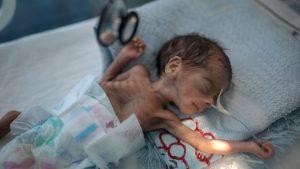 because if you designate someone as a terrorist organization you won’t be able to negotiate with it anymore,” Marwan Kabalan, director of policy analysis at the Arab Centre for Research and Policy Studies, told media.
because if you designate someone as a terrorist organization you won’t be able to negotiate with it anymore,” Marwan Kabalan, director of policy analysis at the Arab Centre for Research and Policy Studies, told media.
“Nobody recognizes the Houthis as a legitimate government of Yemen but they are a very important party to the conflict in the country, so if there are no talks with the Houthis peace will be very difficult to achieve in the country.”
Aid groups, as well as members of Biden’s Democratic Party, have warned the move will severely impede efforts to address what the UN calls the world’s largest humanitarian crisis.
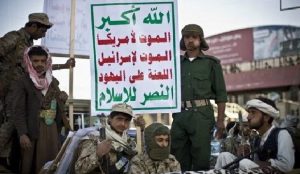 Pompeo insisted the designations – which will come into effect a day before Biden takes office on January 19 – will not affect relief work.
Pompeo insisted the designations – which will come into effect a day before Biden takes office on January 19 – will not affect relief work.
“We are planning to put in place measures to reduce their impact on certain humanitarian activity and imports into Yemen,” Pompeo said.
“We have expressed our readiness to work with relevant officials at the United Nations, with international and non-governmental organizations and other international donors to address these implications.”
‘Imminent danger’ of famine
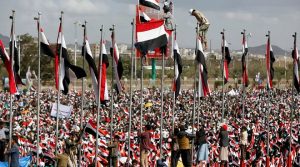 The UN describes Yemen as the world’s largest humanitarian crisis with 80 percent of its people in need of help.
The UN describes Yemen as the world’s largest humanitarian crisis with 80 percent of its people in need of help.
In November UN Secretary-General Antonio Guterres said Yemen was in “imminent danger of the worst famine the world has seen for decades”, warning against any unilateral moves as the US threatened to blacklist the Houthis.
A spokesman for Guterres declined to comment on Sunday. Iran’s mission to the United Nations in New York did not immediately respond to a request for comment.
International relief officials have said such measures have often failed to unblock the flow of aid because banks and insurance companies are worried 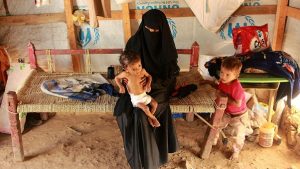 about running afoul of US sanctions, and this could also be the case with Yemen.
about running afoul of US sanctions, and this could also be the case with Yemen.
“Biden has already stated he wants some kind of détente with Iran, he wants to go back to the nuclear deal, he wants to pursue an Obama-type policy with Iran, and he wants the war in Yemen ended,” said Bishara.
“That’s a very important and a very good thing – even the Saudis and Emirates would like to see this war ended because everyone is losing, especially the Yemenis.”
The war in Yemen started in 2014 when the Houthi rebels overran the north and the capital, Sana’a.
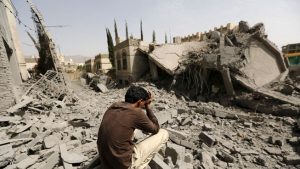 The following year, a Saudi-Emirati-led military coalition intervened to wage war on the Houthis and to restore President Abd-Rabbu Mansour Hadi’s government to power. Hadi has been living in Riyadh since.
The following year, a Saudi-Emirati-led military coalition intervened to wage war on the Houthis and to restore President Abd-Rabbu Mansour Hadi’s government to power. Hadi has been living in Riyadh since.
On the other hand, the Yemen’s Houthi militia on Monday condemned the move by U.S. Secretary of State Mike Pompeo to brand it as “a terrorist group,” head of the Houthi revolutionary committee, Mohammed Ali al-Houthi, said in a statement.
“(U.S. President Donald) Trump administration’s designation of Ansar Allah as a terrorist group is condemned … and we have the right to respond,” al-Houthi said in a statement through the group-run Al Masirah TV.
“Trump administration’s policy is the source of terrorism,” he stressed.
Late on Sunday, Pompeo announced that his department would notify the Congress of its intention to designate the Yemeni Houthi group, known as Ansar Allah, as a foreign terrorist organization.
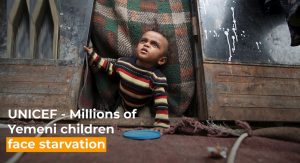 Pompeo also designated three leaders of the Houthi group, including its chief Abdulmalik al-Houthi, on the terrorist list.
Pompeo also designated three leaders of the Houthi group, including its chief Abdulmalik al-Houthi, on the terrorist list.
In response to criticisms by humanitarian aid agencies, Pompeo said that his department has prepared a plan to prevent impact of the move on the humanitarian activities and the supply of aid to Yemen.
Yemen has been mired in a civil war since late 2014, when the Iran-backed Houthi rebels seized control of several Northern provinces and forced the internationally-recognized government of President Abd-Rabbu Mansour Hadi out of the capital Sana’a.
The war has killed tens of thousands of people, displaced 4 million and pushed Yemen to the brink of starvation. Enditem (Int’l Monitoring Desk)
 Pressmediaofindia
Pressmediaofindia
